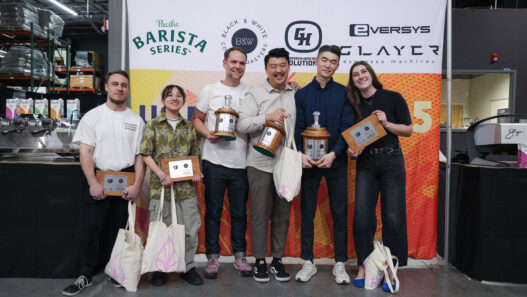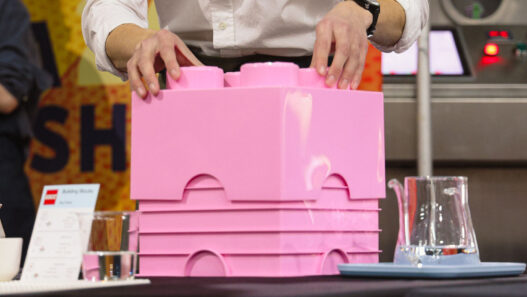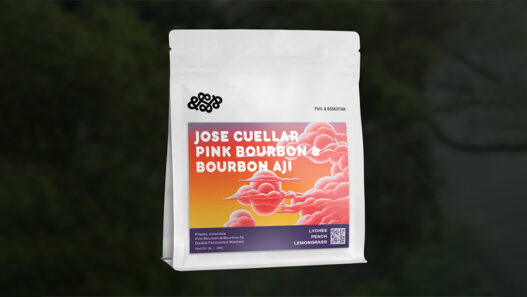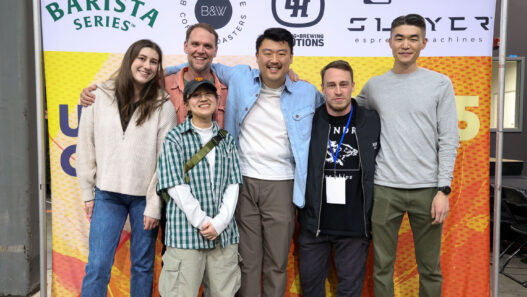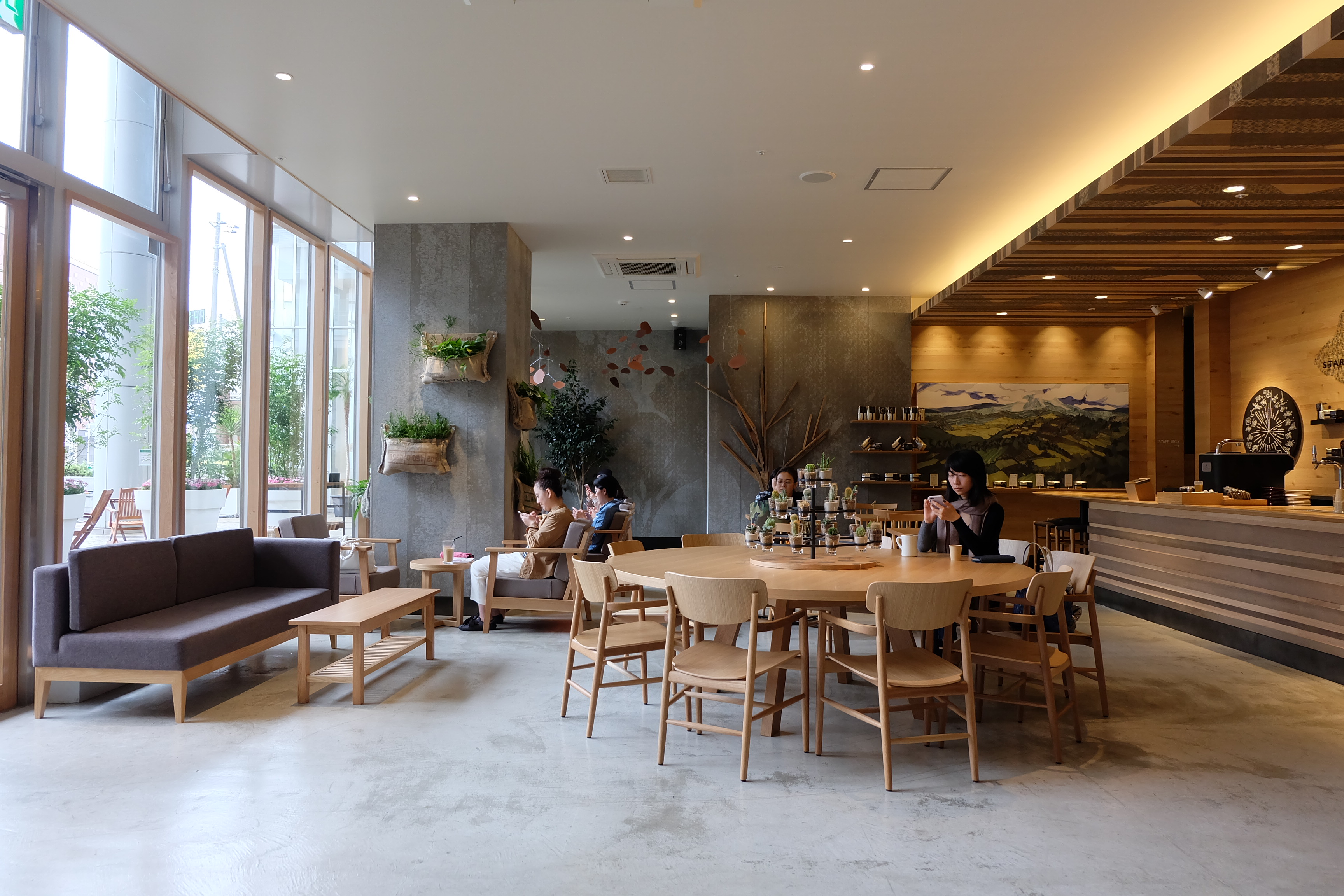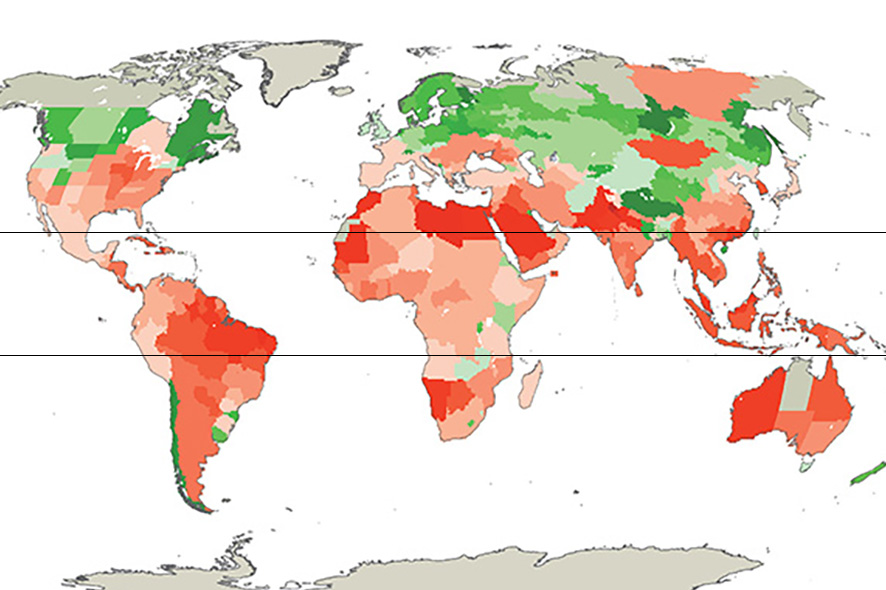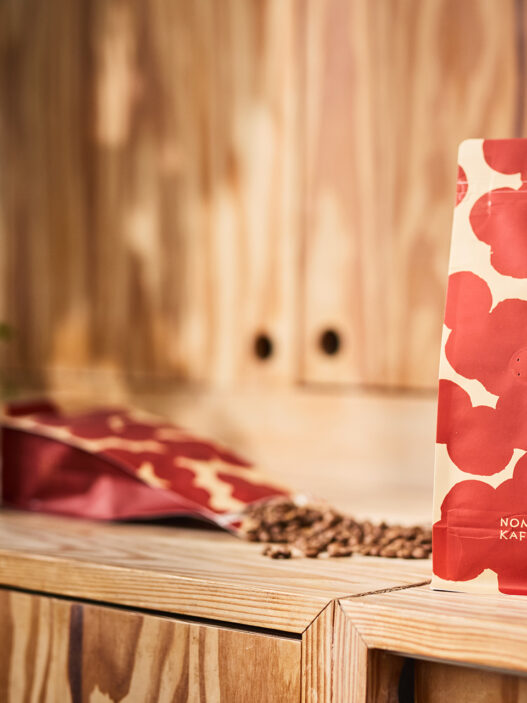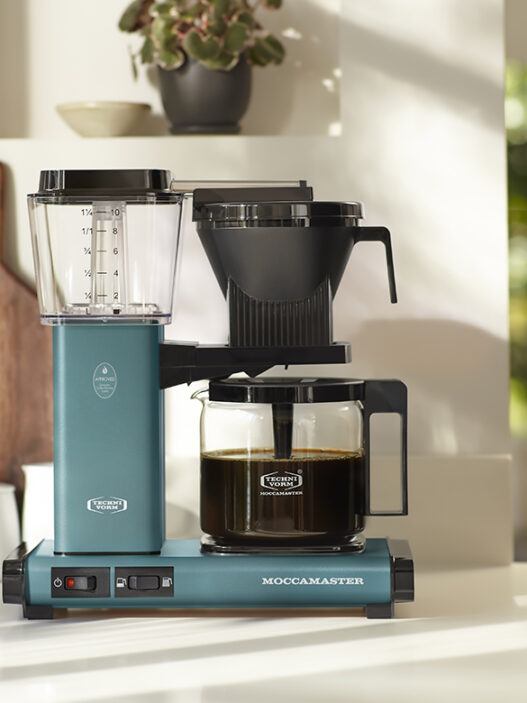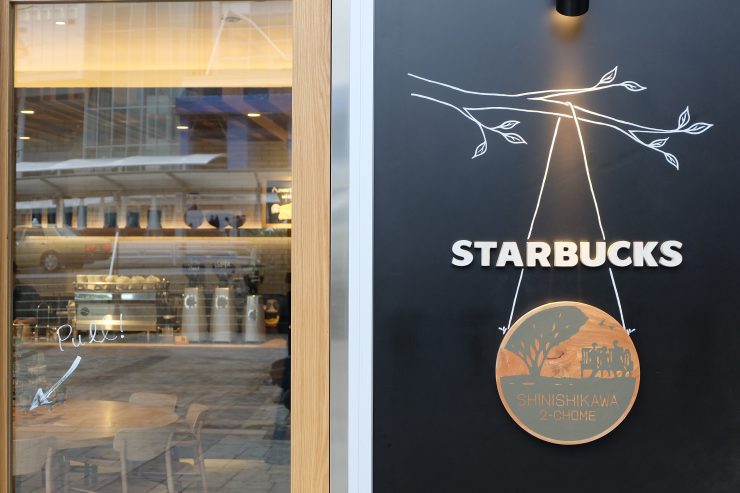
Starbucks, the company responsible for popularizing espresso-based beverages across the United States, has quite a presence in Japan. Since its first opening in 1995, the chain has spread to have over 1,100 locations in this island nation the size of California. Now, arguably due to their influence, you can find lattes everywhere from bargain coffee chains to convenience stores.
In recent years, new-wave espresso culture has led to a boom in small cafe openings across Japan. Young Tokyoites especially patronize these coffee shops and attend cafe openings with excitement. As Tokyo begins to rediscover the joys of the local cafe, and the connection to the community that comes with it, Starbucks has taken notice. Over the past three years, a new line of Starbucks cafes with a specialty coffee vibe has taken shape. These stores, branded as Neighborhood and Coffee, now have several locations and there are more to come.
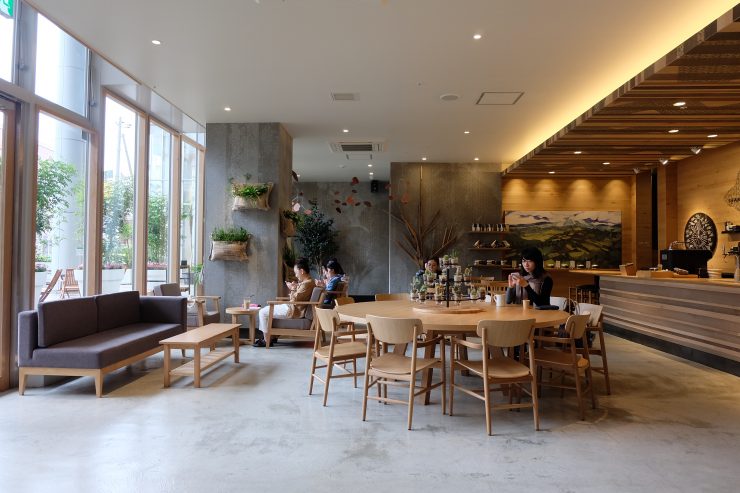
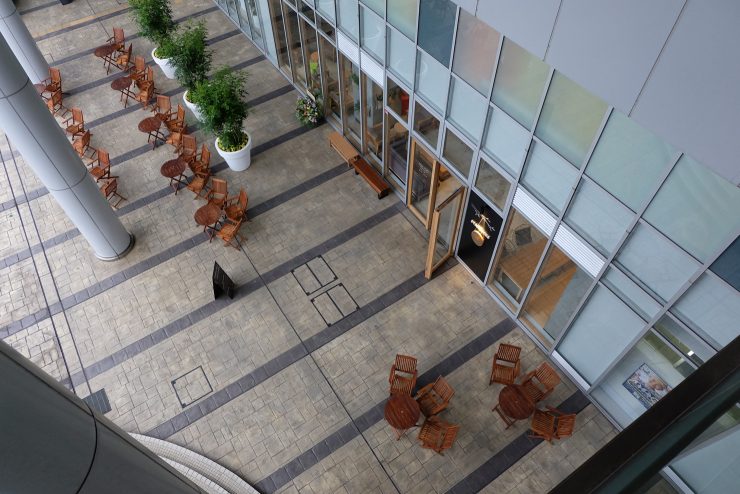
I paid a visit to the newest addition to the Neighborhood and Coffee family outside of Tama Plaza, a bustling commuter town on the border of Tokyo and Yokohama. I’m not going to lie: I’ve avoided stepping foot into a Starbucks since high school, and my jaded, shop-small, hippie heart was skeptical of the operation. That being said, I tried to forget my own hangups and enter the shop with objective eyes.
The first thing I noticed about this store is the lack of branding. The trademark Starbucks green as well as its logo is completely absent from this establishment. Outside the front door you’ll find the company name mounted by the door, but the shop name placard, reading Shinishikawa 2-Chome, is much more decorative. Shinishikawa 2-Chome is also the name of the street this store and the local train station share. From the shopfront you can see busy commuters rushing about the station. The wooden chairs and tables set outside beckon them to slow down and visit the cafe.
The front of the coffee shop is made up of wall-length windows which allow ample light to flood in across a mostly gray concrete room. The tables and seating, as well as the staff work area, are made up of woods with light, natural tones. On the work counter sits a Synesso Hydra espresso machine and some Mazzer Robur grinders. These grinders are stocked with rotating varieties of Starbucks Reserve coffee. African-inspired accent pieces and patterns are found around the work space. The public areas are sprinkled with coffee-themed art and decorations, such as hanging houseplants housed in burlap coffee sacks.
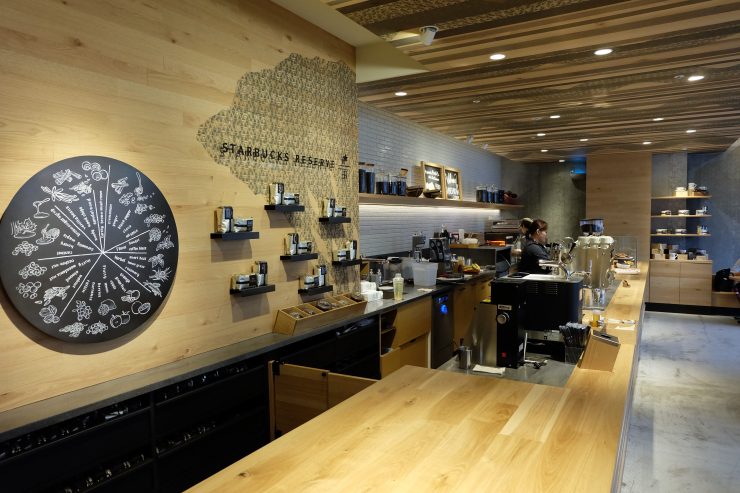
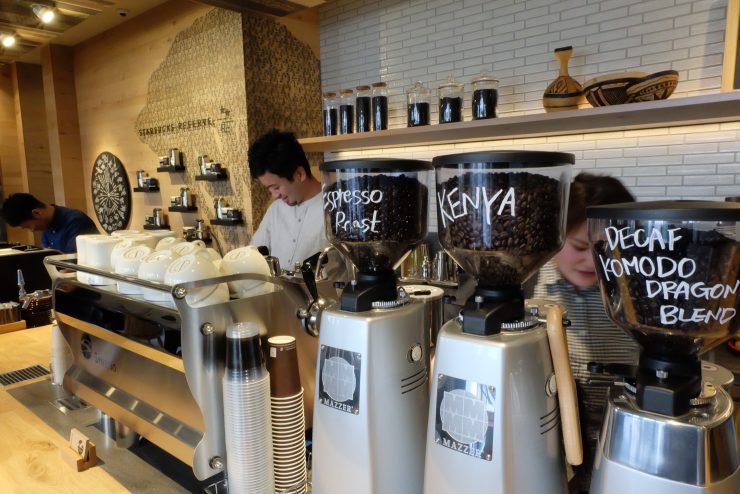
The staff here is eager and friendly. If a queue forms, they are quick to hand menus down the line and to answer questions that people may have. When things get hopping, a second barista jumps on the machine and they work as a team. When I chat with the busy baristas about the cafe and its concept, they seem genuinely enthused with their work and the coffee they serve. I notice the chambray shirts, knit caps, and casual denim of the staff members. There are no uniforms here and no green aprons. By the entryway, pictures of the staff with handwritten bios—which include their hobbies and favorite places in town—add to the familiar feeling.
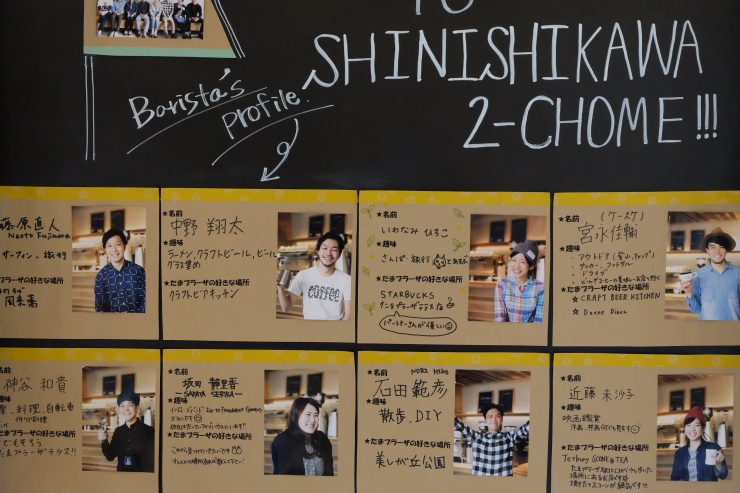
Store manager Fujiwara Naoto tells me that the store concept is as simple as its name: these cafes aim to be true neighborhood coffee shops, places where people can come with friends, drink their coffee, and relax. They hope that the vibe is akin to enjoying a drink at a friend’s house. He goes on to differentiate his shop from its parent company further, telling me that each beverage is made especially for each customer. There are no batch brews here, and no automatic espresso dispensers; it’s more personal. There’s more of a connection between the customer and the staff and more of a focus on coffee. I notice that his business card reads both “Store Manager” and “Coffee Master”.
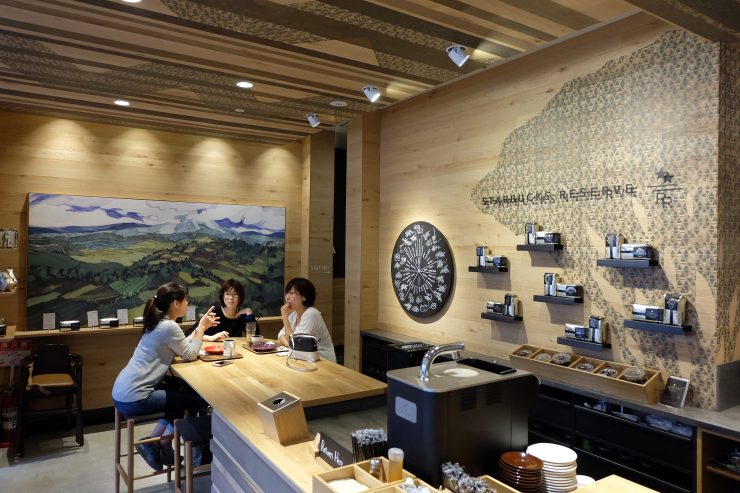
It’s easy to dismiss the big coffee chains when you’re a coffee enthusiast. And while it’s true that I’ve been to coffee shops with more mom-and-pop character, more genuine charm, and to my palate, more interesting coffees, this new direction for Starbucks disarmed me with the earnest quality of its offering. The Shinishikawa Ni-Chome staff is polite and engaging. They take their time with each customer and explain what they find to be unique and interesting about the coffees they serve. Every beverage here is made with care and served with a smile.
It was enough to thaw my ever-so-slightly frozen heart.
Eric Tessier is a freelance journalist based in Tokyo. Read more Eric Tessier on Sprudge.






